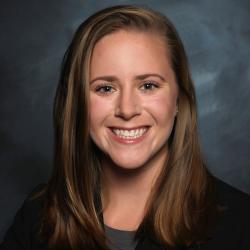Vancouver-based biotech AbCellera Biologics has identified more than 500 antibodies that could potentially be turned into medicines to treat the SARS-CoV-2 novel coronavirus. Now scientists at the National Institutes of Health, with which the company has been working to prepare medical countermeasures for pandemic outbreaks, are testing the candidates to determine which are most potent.
It’s the latest step in an ambitious proposal by AbCellera and biopharma giant Eli Lilly (NYSE: LLY) to spin up an antibody product ready for human testing by the end of July that could potentially treat COVID-19, the respiratory illness caused by the deadly virus. Their timeline aims to compress what is typically a years-long slog into about four months.
The companies last week announced an agreement to work together on creating such a product, saying they will share initial development costs before Lilly takes on further development, including manufacturing and distribution. (That, of course, assumes the biology works as hoped.)
AbCellera brings to the table its rapid screening platform developed by the company’s founding CEO, Carl Hansen, a professor at the University of British Columbia. The company employs a device the size of a credit card dotted with thousands of miniature chambers into which it isolates single B cells from a donor’s blood sample in order to determine what antibodies each cell is secreting.
The company developed software and custom machine learning tools to help with data visualization and other time-intensive tasks inherent in early drug discovery, she said.
“We can look through many millions of individual B cells per day, and this is a really, really deep way to be able to screen the immune system of an individual and look for antibodies that can be turned into therapeutics,” Ester Falconer, AbCellera’s head of research and development, told Xconomy. “In this case, we are looking for antibodies that can recognize the pandemic SARS-coronavirus-2 virus.”
Falconer says half of AbCellera’s company’s 110-person workforce is focused on the project, with others supporting them.
Lilly’s participation gives the 110-person company access to its longstanding expertise in and resources needed for the development, manufacturing, and distribution of therapeutic antibodies.
Falconer heads the project that prepared AbCellera to react so quickly—11 days elapsed between it receiving a donor sample and coming up with the antibody candidates—to the pandemic: the Defense Advanced Research Projects Agency’s Pandemic Prevention Platform (P3) program. As part of that four-year, $35 million rapid pandemic response project, AbCellera previously tested its platform against the MERS coronavirus and against the 2009 pandemic H1N1 flu virus.
In the H1N1 test, the company took seven of its lead candidates into mouse models, all of which proved 100 percent protective. That process was completed in 55 days, Falconer said.
“We’ve essentially stress tested our antibody discovery platform and are able to find therapeutic very potent antibodies against infection disease agents,” she said.
The company began preparing to put the platform to the test again, this time in service of impacting a real-time pandemic, once the first US COVID-19 patients were confirmed in early January. On Feb. 25 AbCellera received a donor sample, thawed the cells, and got to work.
“Everything we had trained for in our pandemic response scenarios, and all the preparation we did in the lead up to getting the sample, was put into immediate action,” she said.
Now the NIH’s Vaccine Research Center at the National Institute of Allergy and Infectious Diseases is starting to screen the sequences to determine the most promising.
Using its know-how to tackle the new pandemic coronavirus has been “kind of a surreal experience,” Falconer said. “We had done the simulated pandemic response scenario, we knew we could do it, and it was essentially [a question of] is something going to hit in the time frame of when we’re involved in the P3 program so we can put what we’ve learned to use?”

